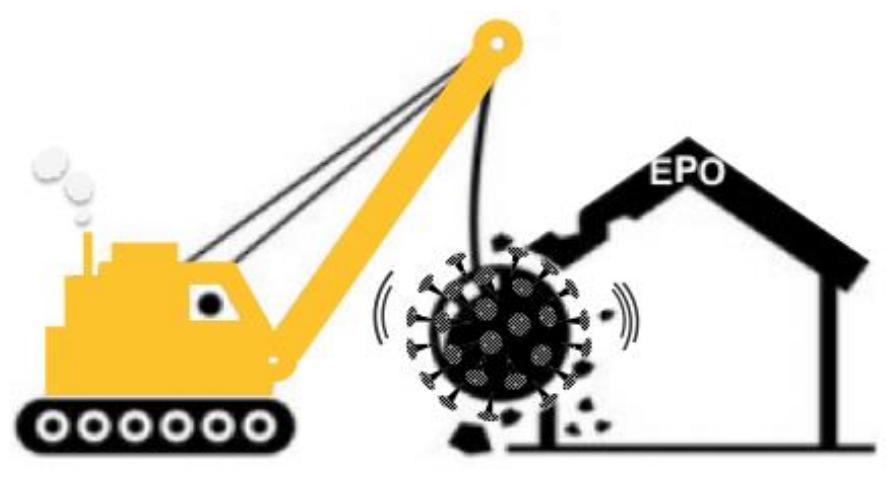

"Things at the EPO are not getting better," one reader told us yesterday, "on the contrary." There's information to that effect circulating at the moment; it organises known facts about what really happens while people are stuck in their homes, forced to work as if everything is normal (with same quotas and more illegal surveillance).
"Well, we already know where a large chunk of that money is funnelled into."We've decided to air a number of articles and tidbits from the guts of the European Patent Office (EPO), where staff feels increasingly oppressed by António Campinos, who is nowadays being compared to Benoît Battistelli.
In times of pandemic, demolition works continues
Whilst staff struggles with the challenges created by the covid-19 pandemic and the ensuing massive home working (done in parallel with home schooling for many), Mr Campinos continues to push shamelessly his reform of the Salary Adjustment Procedure (SAP) that will strip off staff from a decent protection against the erosion of purchasing power. The new SAP will save 2 billions on the backs of staff and pensioners, when everyone (with the ability to read and count) knows that the need to “fill the gap” is just a big lie.
Thanks to Mr Battistelli and his crew, the EPO has since 2015 the worst career system of all international organisations (IO). If the Administrative Council supports the new SAP of Campinos in June, which is certain, we will also “enjoy” the worse SAP of all IOs...
Not only does Mr Campinos intend to remove the normal financial guarantees, which staff should enjoy, but he continues to deny their fundamental rights, such as a proper right to strike, the right to freedom of speech, or a decent access to a swift judicial system. Let’s take the case of freedom of speech and freedom of communication that goes with it. Since mid 2013, mass emails are banned for the staff representation. Campinos could have easily corrected this absurd anomaly in the world of IOs and EU agencies. He did not, and clearly does not intend to do so any time soon. He may not be the one who introduced the unlawful censorship 7 years ago, but he finds it very convenient after all...
Campinos is, no doubt, Battistelli’s true disciple, although perhaps with less brutality towards union officials than his mentor (but time will tell). After all, one should not forget that, like a king choosing his heir, Battistelli did his best to make sure Campinos would succeed him at the head of the EPO. So we should not be too surprised by the harshness of the reforms that Campinos wants to implement (he has a lot of them in mind, including on education allowances...). He basically shares the same “values” as his predecessor, and will continue – unsurprisingly – to protect Battistelli’s protégés (still very active and influent at the Office); he knows to whom he owes the crown of King of Eponia.
Cui Bono?
It is often said that many of the world's great questions can be solved by finding the answer to the question "Where does the money go?”.
The EPO is no different – and the Salary Erosion Procedure is no exception. Upon an initiative of SUEPO, Ernst & Young reviewed the EPO’s Financial Study conducted by Mercer & Wyman. Evidently, they won’t say that Mercer were wrong – they just state ”we come to a different conclusion”. A conclusion that is shared with the many publications by SUEPO, Staff Representatives, EPO Pensioners and press: there is no financial gap at the EPO, and there won’t be any, even under Covid-19 circumstances.
At the latest Budget and Finance Committee meeting, this complementary study was swiftly disregarded, and the Member States’ representatives were all too happy to provide a positive opinion on the new Salary Erosion Procedure. In its June meeting the Administrative Council will follow suit in all likelihood, which will allow the EPO administration to pile even more money on top of the stack of banknotes we are already sitting on – all on the back of staff and pensioners, of course. Quite a thank you for the continued efforts staff has been demonstrating in recent years.
The question remains: who is going to benefit from these large flows of money? Cui Bono?